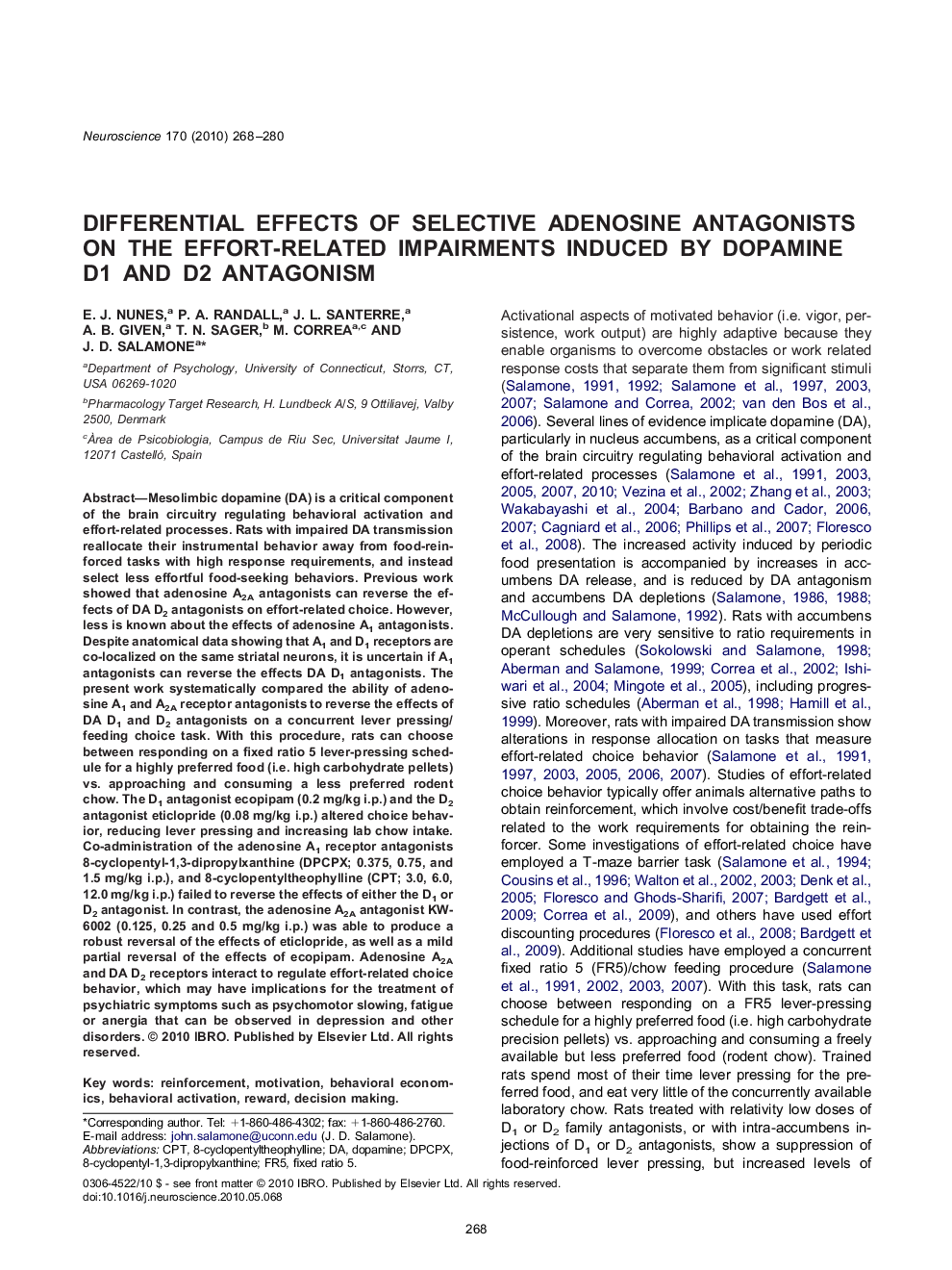| کد مقاله | کد نشریه | سال انتشار | مقاله انگلیسی | نسخه تمام متن |
|---|---|---|---|---|
| 6277230 | 1295749 | 2010 | 13 صفحه PDF | دانلود رایگان |

Mesolimbic dopamine (DA) is a critical component of the brain circuitry regulating behavioral activation and effort-related processes. Rats with impaired DA transmission reallocate their instrumental behavior away from food-reinforced tasks with high response requirements, and instead select less effortful food-seeking behaviors. Previous work showed that adenosine A2A antagonists can reverse the effects of DA D2 antagonists on effort-related choice. However, less is known about the effects of adenosine A1 antagonists. Despite anatomical data showing that A1 and D1 receptors are co-localized on the same striatal neurons, it is uncertain if A1 antagonists can reverse the effects DA D1 antagonists. The present work systematically compared the ability of adenosine A1 and A2A receptor antagonists to reverse the effects of DA D1 and D2 antagonists on a concurrent lever pressing/feeding choice task. With this procedure, rats can choose between responding on a fixed ratio 5 lever-pressing schedule for a highly preferred food (i.e. high carbohydrate pellets) vs. approaching and consuming a less preferred rodent chow. The D1 antagonist ecopipam (0.2 mg/kg i.p.) and the D2 antagonist eticlopride (0.08 mg/kg i.p.) altered choice behavior, reducing lever pressing and increasing lab chow intake. Co-administration of the adenosine A1 receptor antagonists 8-cyclopentyl-1,3-dipropylxanthine (DPCPX; 0.375, 0.75, and 1.5 mg/kg i.p.), and 8-cyclopentyltheophylline (CPT; 3.0, 6.0, 12.0 mg/kg i.p.) failed to reverse the effects of either the D1 or D2 antagonist. In contrast, the adenosine A2A antagonist KW-6002 (0.125, 0.25 and 0.5 mg/kg i.p.) was able to produce a robust reversal of the effects of eticlopride, as well as a mild partial reversal of the effects of ecopipam. Adenosine A2A and DA D2 receptors interact to regulate effort-related choice behavior, which may have implications for the treatment of psychiatric symptoms such as psychomotor slowing, fatigue or anergia that can be observed in depression and other disorders.
Journal: Neuroscience - Volume 170, Issue 1, 29 September 2010, Pages 268-280